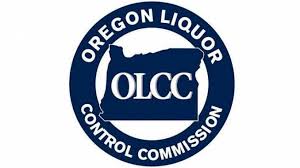| The issue of overproduction has forced some decisions at the OLCC. Here’s the press release in full.
OLCC Will Pause Acceptance of Marijuana License Applications Focus Will Be on Existing Licensees and Current Applicants Portland, OR — The Oregon Liquor Control Commission announced today it will temporarily shift licensing staff to exclusively process recreational marijuana license renewals and applications for recreational marijuana licenses received by June 15, 2018. Any applications for recreational marijuana submitted after June 15 will be set aside for processing until the OLCC processes outstanding applications and renewals in the queue. Since April 2016, the OLCC has issued almost 1,900 recreational marijuana licenses and almost 29,000 marijuana worker permits. The pace of application submissions has not slowed, and as a result, the licensing application process timeline has lengthened. The temporary suspension of new licenses reflects this extended review period currently experienced by applicants, and it will allow the OLCC to clear the application backlog and ensure ongoing oversight of the legal marijuana market. “In order to ensure that the OLCC is fulfilling its regulatory duties and providing timely responses to businesses in the industry, we must focus on the current participants in the system and preserve for the Oregon Legislature its consideration of the necessity for further statutory controls on marijuana licensing in 2019,” said Steve Marks, Executive Director of the Oregon Liquor Control Commission. The OLCC has deployed staff from across the agency several times since the start of licensing to handle spikes in license and worker permit application submissions. However, the occasional surges have turned into a steady stream of applications. Even with additional staff approved by the legislature, it is taking agency staff longer to work through license renewals and license location changes, and to approve changes to existing licensed premises. In addition to processing new license applications, the OLCC is obligated to service its existing licensees through license renewals and changes in business structure filings. The agency has learned during the first two years of licensing that it takes significant staff time and resources to complete marijuana license renewals. Also, as a result of a change in Oregon law up to 2,000 (OMMP) grow sites are required to register with the state’s Cannabis Tracking System (CTS) by July 1, 2018. The OLCC will be responsible for compliance auditing and inspection of these grow sites using CTS. OLCC’s combined auditing of the state’s recreational and medical marijuana markets is expected to provide comprehensive oversight of legal cannabis production. The OLCC is also putting additional resources into the field for compliance activity, with a focus targeting Oregon’s 2018 fall outdoor harvest. “Public and consumer safety are guiding priorities for the OLCC and our work with regulators, law enforcement, and the marijuana industry,” said Marks. “The success of our regulated system will continue to rely on our cooperative effort to encourage legitimate participants in this system, while deterring and shutting down illegal activity.” |
MJ Biz article highlights the stark reality of the issue
Oregon cannabis growers slashing prices amid massive oversupply


















